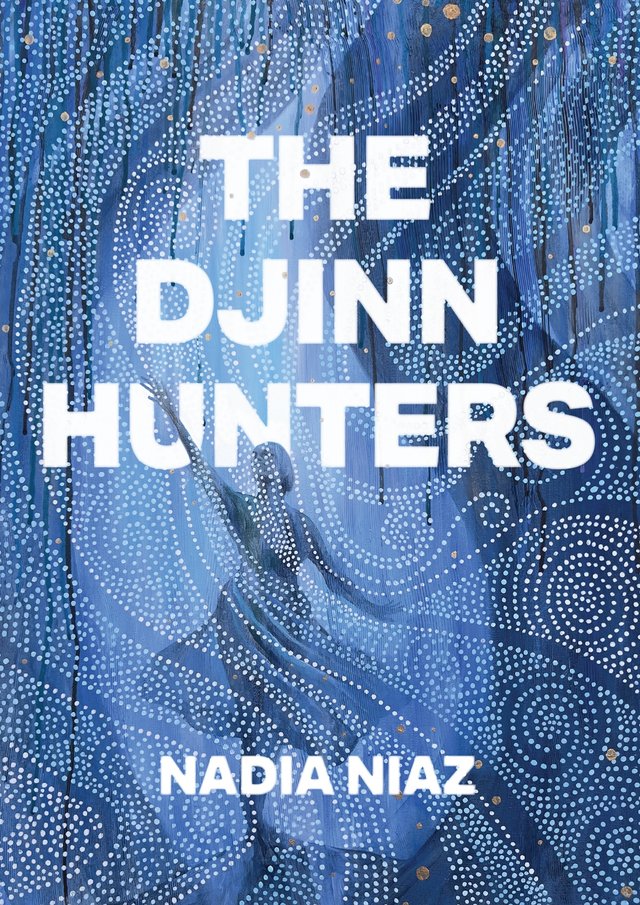 Reviewed by Beatriz Copello
Reviewed by Beatriz Copello
The Djin Hunters
by Nadia Niaz
Hunter Publishers
ISBN: 9780645336696, February 2024, Paperback, 72pp, AUD$20.00
Dr Nadia Niaz is the founder editor of the Australian Multilingual Writing Project which publishes creative works in multiple languages. Niaz has been widely published in many important publications. The Djin Hunters is a culturally and poetically fascinating book. The first thing I did when the book came to me was to read about Djinns. A Djinn is an invisible spirit mentioned in the Koran and believed by Muslims to inhabit the earth and influence mankind by appearing in the form of humans and animals. In an excerpt of the poem titled “The Djinn Hunter” Niaz says:
If you ask kindly and show respect, she may even agree
to mark you and your descendants evermore of the djinn
But she will do this only if you and your sisters swear
to tell no-one and keep the law of the djinn.
Not everything in The Djinn Hunters is about Djinns. The reader will enjoy reading about moments in time, inheritance, food, customs, places and human experiences. The poems are sometimes narrative and sometimes lyric and written in a variety of forms, with mixtures of verse and prose, lines of different lengths and concrete shapes. Some poems contain hints of romanticism and others are political.
Niaz’s poetry brings you close to people from a different culture, children and women selling, swimming in dirty channels or swallowing smoke while picking stones from rice and dhal. The writing is consistently evocative and powerful.
Nature makes its presence felt in many pages, particularly birds. There is a beautiful poem titled “A Time of Birds” in which we read about the hoopoe with its black-tipped orange crest bobbing against misted grass.
Many of the poems in The Djinn Hunters are autobiographical, tracing Niaz’ life, her travels and her thoughts, as in “Night Fragments”:
language rests its point against my tongue, the prickling of words I swallow
on evening streets, in izakaya-mezze-tapas cacophonies
‘learn to be better’ fresh-inked on young brown skin, orange lights of
Tintinnabulating train signals dancing in the sweet-sour aticeptic sheen
a dapper butch smiles in philosophical tweed proclaiming bodies difficult,
but my dappled skirt arouses rationalisations
the ochre of the pub across the street glows like hope blooming in unlit
corners, its delicate ivy invading stucco seams
we move through transmutations, travelling consciousness—now plant,
now mineral, elemental, animal, returning unmade
in the darkness nightmares flutter against my skin, flesh wearing away their
knife edge, their dull creeping cold
In this poem, like in many of the other poems in this book, the poetry is vivid and evocative, filled with striking imagery, sensory details, and descriptions that create a strong visual and tactile experience for the reader. Some of the poems have an evocative moods while others invite multiple readings to fully appreciate the layers and nuances. Some of the poem have powerful messages like the following poem titled “Two Ways to Touch the Sky”:
One:
Hoard all your hurts
your slights, your snubs
resentments and impediments.
Lay them atop the other
and start to climb.
Take names and catalogue
every detail of every thwarting.
Learn them like the multiplication
tables the nuns beat into you.
Recite them annually, monthly,
weekly, at every opportunity.
When you get to the top
Guard its growing heights,
layering it with the ash
of each errant saviour
you incinerate.
Sit in and never leave.Two:
Fly.
This thought-provoking poem conveys a powerful message about the dangers of holding onto past hurts and resentments. The imagery of hording these negative emotions and allowing them to consume you is a meaningful reminder of the importance of letting go and moving forward, something that I particularly appreciate as a psychologist. The poem serves as a cautionary tale about the consequences of dwelling on grievances and allowing them to define who we are. Ultimately, the poem encourages self-reflection and the importance of choosing to release the burdens that weigh us down.
The Djinn Hunters will embark you on a trip of many colours and shapes, with sprinkles of humour, petals of nature, shades of culture and a downpour of words that will make you see the world in a different way.
About the reviewer: Dr Beatriz Copello is an award-winning poet, she writes poetry, fiction, reviews and plays. The author’s books are: Women Souls and Shadows, Meditations At the Edge of a Dream, Under the Gums Long Shade, Forbidden Steps Under the Wisteria, A Call to the Stars translated and published in China and Taiwan, Witches Women and Words, No Salami Fairy Bread, Rambles, Renacer en Azul and Lo Irrevocable del Halcon (In Spanish). Copello’s poetry has been published in literary journals such as Southerly and Australian Women’s Book Review and in many feminist publications. The author has participated in international conferences, has taught Creative Writing at W.S.U. and other scholarly institutions, she has read her poetry at Writers Festivals and other poetry events in Australia and overseas. Copello is mentioned amongst the forty “most notable people” graduated from the University of Technology.